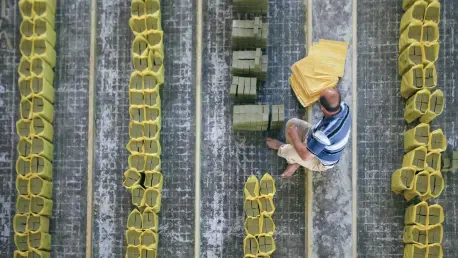I’m thrilled to sit down with Kwame Zaire, a renowned expert in manufacturing with a deep focus on electronics and equipment. With years of experience in production management, Kwame has become a thought leader in areas like predictive maintenance, quality control, and workplace safety. Today, we’re diving into the complexities of the current job market, exploring why hiring has slowed despite a seemingly low unemployment rate, the personal and financial toll of prolonged unemployment, and the broader economic uncertainties impacting industries like manufacturing.
How do you see the current job market from your perspective in the manufacturing sector, especially given the reported low unemployment rate of 4.3%?
From where I stand in manufacturing, the low unemployment rate feels like a bit of a mirage. Sure, on paper, 4.3% looks good, but it doesn’t capture the reality for many skilled workers I know in electronics and equipment production. Hiring has slowed to a crawl, even for roles that are critical to maintaining output. Companies are hesitant to commit, and I’ve seen job postings linger for months or get pulled entirely. It’s frustrating because the demand for our products hasn’t disappeared, but the willingness to staff up has.
What do you think is driving this hesitation among companies to hire, especially in your industry?
There’s a lot of uncertainty weighing on decision-makers right now. In manufacturing, we’re particularly sensitive to things like interest rates and potential tariffs, which can spike costs for raw materials and equipment overnight. Then there’s the buzz around artificial intelligence—some firms are holding off on hiring while they figure out if automation can replace certain roles. Plus, with the government shutdown stalling key labor data, companies lack the clear picture they need to make bold moves. It’s like trying to navigate a factory floor with the lights half off.
How have you seen this hiring slowdown impact workers in manufacturing, particularly in terms of their job search experiences?
It’s been rough. I’ve talked to folks who’ve sent out hundreds of applications for roles in production management or maintenance, only to get automated rejections or no response at all. Some have had interviews canceled mid-process because the company decided not to fill the position. It’s not just the lack of jobs—it’s the impersonal nature of the process that’s wearing people down. And for older workers, there’s a lingering fear that age is a factor, even if no one says it outright.
In your opinion, how does this prolonged unemployment or underemployment affect workers on a personal and financial level?
The toll is heavy. I’ve seen colleagues take on gig work or unrelated part-time jobs just to pay the bills—think skilled technicians driving rideshares instead of fixing equipment. Financially, savings get drained fast, and people are forced to cut back on basics. Emotionally, it’s even worse. The longer the search drags on, the more discouraged people get. In manufacturing, where pride in craft is huge, not being able to contribute feels like losing a piece of yourself.
How are workers in your field adapting to these challenges to improve their chances of landing a job?
Many are getting creative. I’ve seen folks dive into online courses to learn new skills, like programming for predictive maintenance systems or getting certified in emerging tech that supports automation. Others are broadening their scope, applying for roles outside their niche just to get a foot in the door. Networking has become critical too—connecting at industry events or through online platforms can sometimes bypass those cold application systems. It’s about staying relevant in a market that feels stuck.
What role do you think technology, like artificial intelligence, will play in shaping job opportunities in manufacturing over the next few years?
AI is a double-edged sword. On one hand, it’s driving investment in things like data centers, which could create new roles in equipment setup and maintenance. On the other, it’s prompting companies to rethink labor needs—why hire a full team for quality control if a machine can do it faster? In the short term, I think it’s contributing to the hiring freeze as firms experiment. Long term, it’ll likely shift the skills we need, pushing workers toward tech-savvy roles while phasing out some traditional ones.
What is your forecast for the job market in manufacturing as we navigate these economic uncertainties?
I’m cautiously optimistic, but we’re in for a bumpy ride. If economic policies around tariffs and interest rates stabilize, I think we’ll see hiring pick up, especially for specialized roles in electronics and production management. But if uncertainty lingers—or if AI adoption accelerates faster than workers can retrain—we could see a deeper divide between those with jobs and those stuck on the outside. My hope is that companies and policymakers prioritize upskilling programs to bridge that gap before it widens further.









